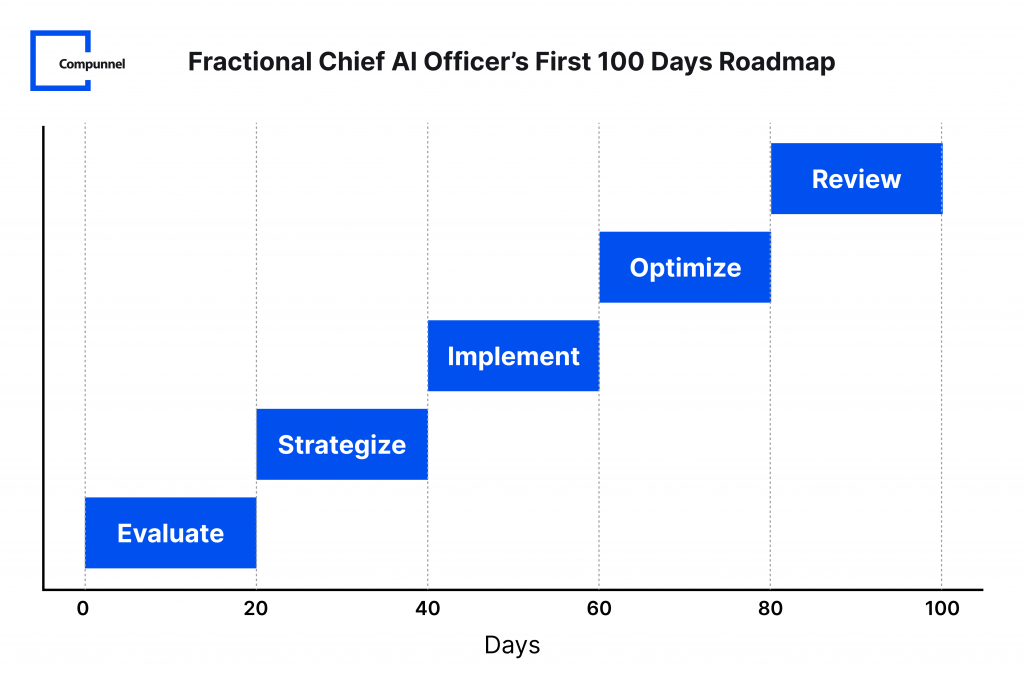Every Nurse Who Left Last Quarter Still Has System Access. Do You Know How Many?
A Number That Should Keep Every Healthcare CISO Awake Think of it as digital sediment. Every employee who joined and…
Artificial intelligence is changing how industries work, sparking new ideas and even reshaping how businesses operate. But as AI advances so quickly, companies often don’t keep up with creating strong governance rules. This can lead to risks related to ethics, laws, and daily operations. It’s important for organizations to develop AI governance that stays in step with innovation, so they can grow responsibly without sacrificing trust or integrity.
“Over 50% of organizations now have a person championing AI, but 88% confess this individual isn’t formally designated Chief AI Officer — leaving a dangerous leadership gap addressing AI risks and strategy.”
AI technologies are being embraced at a rate unprecedented in history. In a McKinsey survey, companies are increasingly implementing AI across various business functions, with three functions on average using AI—a huge leap from past years. Yet, in many cases, this rapid deployment comes without any governance frameworks, creating issues such as data privacy issues, algorithmic biases, and regulatory non-compliance.
As per a Pew Research Center report, there exists a gap between the public and AI experts: while 75% of AI experts believe in the constructive potential of AI, only 25% of the public has faith in it. Such distrust calls for responsible and clear AI governance to help build public trust.
Regulatory Compliance: Lack of standardized global regulations makes governing AI more difficult. Firms must deal with a messy matrix of regional legislation and guidelines like the European Union’s AI Act and U.S. state-level regulations.
Ethical Considerations: Making sure that AI systems are free of bias and keep moral standards high is the top priority. Cases of AI models discriminating against certain sections have made it even more important for institutions to develop frameworks that are fair and accountable.
Data Security and Privacy: AI systems are known to require huge amounts of data, and therefore, there is a concern regarding data protection and breaches. There is a need for stringent data governance protocols to safeguard sensitive data.
Ignoring AI governance will result in great financial and reputational loss. Firms will have to pay legal fines, lose customer trust, and experience business disruptions. Organizations that adopt proactive responsible AI governance models, on the other hand, will extend their competitive edge, improve innovation, and strengthen stakeholder relationships.
Imagine risking billions on AI to revolutionize the way houses are sold and bought. One technology giant imagined employing machine learning to forecast house prices, acquire homes quickly, refurbish them, and resell for a profit — all with little human intervention. It sounded like the future of property. But fantasies without solid leadership can come crashing down.
They lacked a Chief AI Officer who would be in charge of the models, keeping risks at bay, or intervening when things began to go awry.
Business teams pursued growth goals, religiously believing in AI. Nobody applied brakes when the models ceased to keep pace with reality. Without real-time monitoring, human validation, or adequate governance, the system continued to operate broken.
Ultimately, the project resulted in enormous financial loss, thousands of job losses, and a shutdown entirely — not due to a failure of AI, but because there was missing leadership around AI
Companies frequently require specialist AI leadership on a fractional level. Here’s a structured plan of Compunnel Inc.’s Chief AI Officer As A Service (CAIOaaS) to drive maximum impact in the first 100 days as a Fractional Chief AI Officer (CAIO):
Along the way, continuous communication is important to align stakeholders and propel AI adoption.

To overcome these issues, Compunnel provides Chief AI Officer as a Service (CAIOaaS), which provides organizations with professional expertise to ensure AI innovation aligns with strong governance. This service guarantees that AI projects are ethical, compliant, and strategically implemented in business processes.
With CAIOaaS, organizations can safely venture into AI innovation with the assurance of having a gateway to AI governance that neutralizes risks and maintains ethical standards.
As AI continues to advance, having responsible AI governance alongside technology is not only a requirement but also a strategic mandate. It’s imperative for organizations to actively develop and evolve their AI governance structures to be able to effectively manage the digital era’s complexities. Compunnel’s CAIOaaS offers businesses a trusted companion in this endeavor, ensuring that innovation and governance align.
Answer: AI governance ensures AI initiatives remain ethical, compliant, and aligned with business goals. It mitigates risks such as data breaches, algorithmic biases, and regulatory violations, enabling organizations to innovate responsibly and maintain stakeholder trust.
Answer: Key challenges include regulatory compliance with global and regional laws, ethical concerns to prevent biased AI models, and data security and privacy issues. Addressing these ensures safe, accountable, and effective AI deployment.
Answer: Without a Chief AI Officer, organizations may lack oversight, real-time monitoring, and risk management, leading to operational failures, financial losses, reputational damage, and ethical breaches, even if the AI technology itself is sound.
Answer: Compunnel’s Chief AI Officer as a Service (CAIOaaS) offers fractional AI leadership, governance frameworks, and monitoring tools. It ensures AI projects are ethical, compliant, strategically implemented, and adaptable to evolving regulations and business needs.
Answer: The roadmap includes:
This ensures measurable impact and effective AI governance.
Answer: CAIOaaS provides expert guidance, integrated governance platforms, and continuous monitoring, allowing organizations to innovate with AI confidently while minimizing risks, ensuring ethical standards, and maintaining compliance with regulations.
Answer: Organizations gain reduced risk exposure, improved regulatory compliance, enhanced stakeholder trust, and better innovation outcomes. Strong AI governance ensures AI projects are scalable, ethical, and strategically aligned with business goals.
